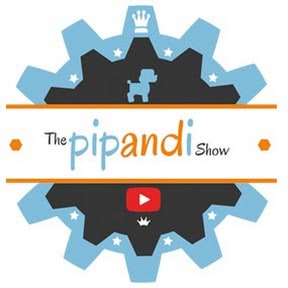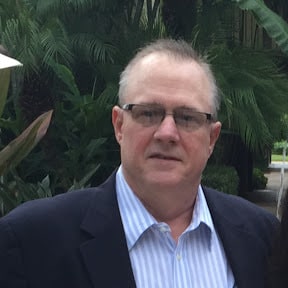You put all you’ve got into it, and yet you just can’t seem to get your podcast to take off. You wonder, what’s it going to take to improve my podcast?!
It used to be that we’d see new podcasts getting 2,000 downloads per episode easily just by having a decent show and putting it on iTunes. These days, it’s far more competitive. I see more and more shows that never crest the 300 downloads per episode mark.
We’ve been there. It can be so frustrating when you make something really great or really helpful, and people just don’t seem to want it. Or do they? Maybe they just aren’t finding it. Or maybe the content is good, but they just don’t enjoy the presentation.
There are a lot of things that can hold your podcast back. Here are 7 that won’t take much to fix, but that could mean the difference between a great podcast and a mediocre one.
You’re trying to do it solo
Solo podcasts are really hard to pull off. Really, just go try to find a successful podcast or radio show that’s truly solo. Most successful personalities will have at least one co-host to keep things interesting. And it really does help to keep things interesting.
It’s tough to monologue for an entire show. To do this, you really have to have a lot of material what to talk about and you have to be really engaging. And let’s face it, most of us just aren’t that engaging when we’re alone.
So what do you get with a co-host. First of all, you get two minds. I can pretty much guarantee that your co-host will not have exactly the same thoughts as you. Including a co-host gives your listeners multiple perspectives and better information. Second, and probably more importantly, you get more engaging conversation. Monologues aren’t very engaging, at least not for an entire show. But conversations really can be.
So get a co-host. It’ll really pay off.
It sounds too scripted
It’s pretty easy to tell when someone you’re listening to is reading from a script. It just doesn’t sound very natural.
If you’re scripting your show, your listeners can tell. And if solo shows lack engagement, then scripted shows really do. Don’t write out a script.
Over the last few years of podcasting full time, I’ve found that my best shows are when I create a general outline and then think of some really interesting, clever tips to throw into the mix. Then I go ahead and record without planning each and every thing I’m going to say. It keeps the tone conversational and fun but also on-track.
I know that talking without a script can be really intimidating for a lot of people. Trust me, I do. In fact, I am one of those people. Speaking without a plan is really hard for me to do. But there are a few tricks to get around that.
First, get a co-host. There that one comes again… Having a co-host will give you breaks where you can think through what you want to talk about next. The reason we get tripped up when we’re speaking or presenting, is that we’re not giving ourselves time to think out our next sentence. So turn the monologue into a conversation and that will make it a lot easier to have a realistic conversation that’s not scripted.
Next, write an outline. If you have trouble just talking, even with another person, about a topic for the entire length of your podcast, then go ahead and prepare a very simple outline. This will help you stay on track and cover everything you planned to, but it’ll allow you a lot of room for unscripted conversation.
Nobody can tell by listening that you have an outline. But if you read your entire show, then they will know.
It sounds too disorganized
Some people have the opposite problem. Some people are really good at talking… but not very good at structuring their thoughts into a flow that makes sense.
Have a purpose for every episode of your show! People don’t subscribe to podcasts just to hear some people talk. They subscribe because what you’re talking about interests them. But, if in every episode is just a view into your stream of consciousness then the show won’t have a lot of value and you won’t get a lot of return listeners.
So how to you combat this? The same ways I talked about above.
If you have a co-host, then you can keep each other on topic. If you write an outline, or even just talk through the main points you want to make in the episode before it starts, then you and your co-host can make sure you get to the point.
There is one more recommendation that’ll instantly cure this problem for you. Segment your shows. You know, like they do on ESPN or just about any radio show. Come up with some standard segments for your episodes and break them up. This will help them not sound at all monotonous, and it’ll help you keep your episodes organized and cover what you want to cover.
Interviews are BORING!
You might have been thinking, “If I’m not supposed to do solo shows, then maybe instead of a co-host, I can just do a lot of interviews. That’ll work, right?” Wrong!
Interviews can be just as boring to listen to as solo shows–but they don’t have to be. Let me tell you why. If most episodes of your show are built around interviews, then the interviews quickly become the same set of questions and answers given over and over again. It’s really hard to find interesting people to interview for every show without falling into repetition.
Interviews end up being a lot about the interviewee and not about the listener. People listen to your show because the information you give provides some benefit to them.
Obviously, there are some EXCELLENT interview podcasts out there that are tremendously successful, but we find that it’s more the exception than the rule. It’s REALLY TOUGH to learn to be a good interviewer and to find people who won’t talk about themselves for the whole show.
Interviews usually don’t end up being good discussions about a topic. They and up just being a series of questions and answers. Assuming you don’t know everyone you’re planning to interview very well, then you’re going to stick to asking questions to try to pry as much insight out of the interviewee as possible. And you can get some fantastic information out of interviews. But this comes at a cost.
People like to hear some banter, debate, and real back-and-forth between show hosts. When you interview other people, they don’t get that. And while the information might be really valuable, it just won’t be any fun to listen to.
But can’t interviews be really valuable? Yes!
I’m not saying you should never do interviews. But I am saying you shouldn’t make an entire podcast based on them, simply because it’s really hard to pull off well. There are some people who do it and see great success. I get that. I’m just saying that after doing this full time for years, I see more failures in the interview space than in the co-host space. Just like there are some really successful solo shows. But they’re the exception to the rule.
So how do you pull off a good interview? I’m glad you asked.
This goes back to another suggestion I made. Segment your shows. There is nothing wrong with doing an interview segment in your shows. You could make a 20-30 minute segment that appears in some or even all of your episodes for interviews. But make it part of a bigger show. Go ahead and include your co-host. But build an entire show around a topic and include some discussion and other segments that go after and even before the interview.
The other important thing to keep in mind about interviews is that the show is not about them. It’s about the audience. And this brings me to my next point.
The show isn’t about the listener, but it should be
It’s really easy to make your show be about you, or about the people you interview. But it needs to be about your audience.
People want to hear about your success. They want to get to know you, but not because knowing you brings them so much joy. They want to know you so that they feel confident trusting you to help them. But it really does all come down to how you can help them.
Your episodes should include examples from your experience and lots of insights from the hosts and interviewees. Tell them stories! But a lot of people make the mistake of bringing someone on the air for an interview and doing a coaching call or review of that person’s business. This type of show really helps the person being coached. It might help the person whose business you reviewed get a lot more traffic to their site.
But what does it do for your audience?
Sure, there are probably a lot of things that the audience can and should pull out of a coaching call to help them succeed. But usually people want to have your tips and recommendations directed at them. Not everyone can easily see how the recommendation you gave to your interviewee applies to them. Not everyone can easily see how your experience is analogous to their own, and how they can apply your actions to better their situation.
So make it clear.
Coaching calls can be good, if you make sure you tie your recommendations back to the audience. Personal experiences are great to talk about as long as you point out the lessons that your listeners should learn.
Address your audience directly and do it often. Challenge them to act based on the tools you’re giving them. This type of podcast episode will be a lot more engaging and useful for your listeners.
You’re not publishing often enough (downloads in the last 24 hours)
One of the most important metrics that the itunes store uses to rank podcasts is the number of downloads in the last 24 hours. So what happens if you only publish a podcast once every two weeks?
Your podcast may bump up in the rankings for the day or two after you publish, but it’ll drop down quickly after because the majority of your downloads will be by subscribers who will download your podcast automatically right after each episode is published. And during the week an a half that you’re low in the rankings, nobody new will be able to find your podcast.
The other problem with publishing infrequently is that your listeners lose interest in what you have to say. If they don’t have new content often enough, their interest is more likely to fizzle out between episodes and they’ll unsubscribe.
So how often should you publish?
That really depends. Well-known radio personalities publish all their radio shows as podcasts and they’re putting out a 3-hour show daily. You probably shouldn’t do that… Odds are you don’t have enough content to stay interesting for 3 hours a day. And unless this is your full-time job, you won’t be able to keep up with it. These guys spend the rest of their workday preparing the next day’s show. Now, if podcasting is all that you do for work, then maybe you can prepare an interesting 3-hour show for each day. But for almost everyone reading this, don’t do that.
What about once a week?
This is probably not a bad frequency for most of us. I find the best success with a once-weekly podcast. A 30-60 minute episode once per week is frequent enough to keep people engaged and by the time you start to slip in the rankings due to low daily downloads, you have a new episode publishing.
What if you want to publish more often?
Two episodes a week is still probably alright for an average show, but if you really want to do twice a week, I’d prefer you just do two podcast shows once per week instead. If you’re putting the time in to prepare quality episodes twice a week, then that’s fantastic. The point is, you should publish often enough that the number of downloads per day never drops too far. Sure, you’ll see a bump in the 24-hours after each episode publishes. So you’re going to see ups and downs in your download volume. Just don’t wait so long between episodes that the downs get too low.
You’re publishing too often
Some people have the opposite problem. Some shows publish way too often.
But wait… didn’t I just say that publishing more often will keep people more engaged and help you rank higher on itunes? I did indeed, but that’s only true to a point.
You should only publish as often as you can while still creating a great show that people enjoy listening to. A lot of the most successful podcasters out there are only publishing a given podcast once a week. Could they publish more often and get more downloads and even create solid content? Absolutely. So why don’t they?
The fact is, there are some shows that do publish much more often, but they’re usually shows that people only catch a part of here and there. If you want to grow a real audience that listens to your shows and downloads every episode, then what you don’t want to do is flood their device with more podcasts than they’ll ever have time to listen to. That’s a quick way to get them to unsubscribe.
So what all happens when you publish too often?
Your show suffers. Let’s face it, it takes real work to prepare a quality show the people will enjoy. If you’re going to do interview segments, then you need to find people to interview, schedule those, and get them recorded before each episode, and that can take quite a bit of time. If you have a co-host, which you definitely should, it can be hard to schedule times for frequent shows unless this is both of your full-time job. Plus, if you publish too often, your show is likely to get really repetitive, which means your content loses value for most of your listeners.
The other downside that I alluded to above is that your listeners just don’t have time to listen to so much content. Now this varies a lot from person to person. Some people commute an hour each way to work every day and like to listen to their favorite podcasts as they drive. For these people, you almost can’t create too much content. However, there are a lot of other people who just don’t have as much time to listen to podcasts and they have to be more choosy about where they spend their time. For these people, getting a ton of episodes downloaded to their device can be overwhelming and can lead to your listeners clicking the “unsubscribe” button. I know I’ve done it.
So what can you do about it?
Stick to one or two episodes a week for any given podcast. Now, if podcasting is really going to be your full-time job and you have the time to put into daily episodes, then that’s fantastic. You probably still shouldn’t publish episodes every day for your podcast. But you can still publish an episode every day. Let me tell you how.
Start building a network of podcasts.
If you really do have enough content for a daily podcast, then your content is probably covering a fairly broad range of topics. So niche down on your podcasts. Notice I said podcasts. That’s right. Create multiple podcasts and give each one a different focus and a slightly different segmentation. You can even play around with episode length between your podcasts. Maybe one podcast has a 20-minute format while another is a 60-minute format.
What this does is allow people to pick what they really want to hear and will help your podcast rank higher in more niche topics. You’ll get a lot of overlap because you’ll have some listeners that just like you and your content so much that they’ll listen to everything you make. But for others, who only like certain aspects of what you talk about, they’ll be able to download exactly the topic, length, and format they want which will help you retain a lot of listeners who would have otherwise clicked “unsubscribe”.
This helps, but how do I really improve my podcast if I want to take it to the next level?
All of these suggestions are about content, which really is what your podcast is all about. It’s the content of your podcast that keeps people listening to episode after episode. But there are other things that can help to make or break your show.
If you want to learn how to further improve your content, make your show sound more professional, and make a living from your podcast, then check out Podcast Advance! by Income School.








